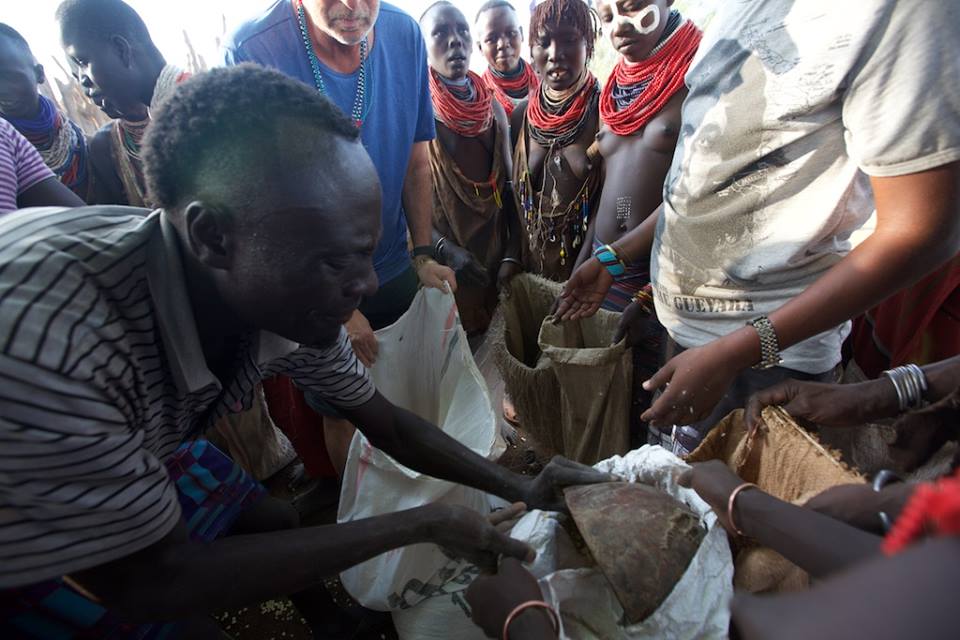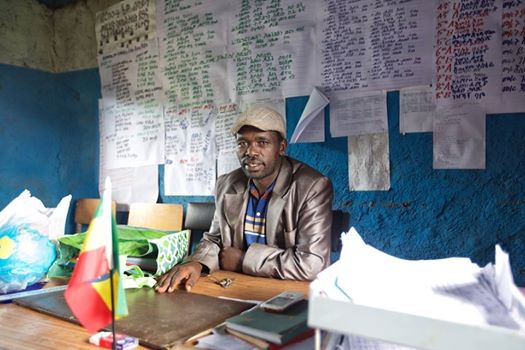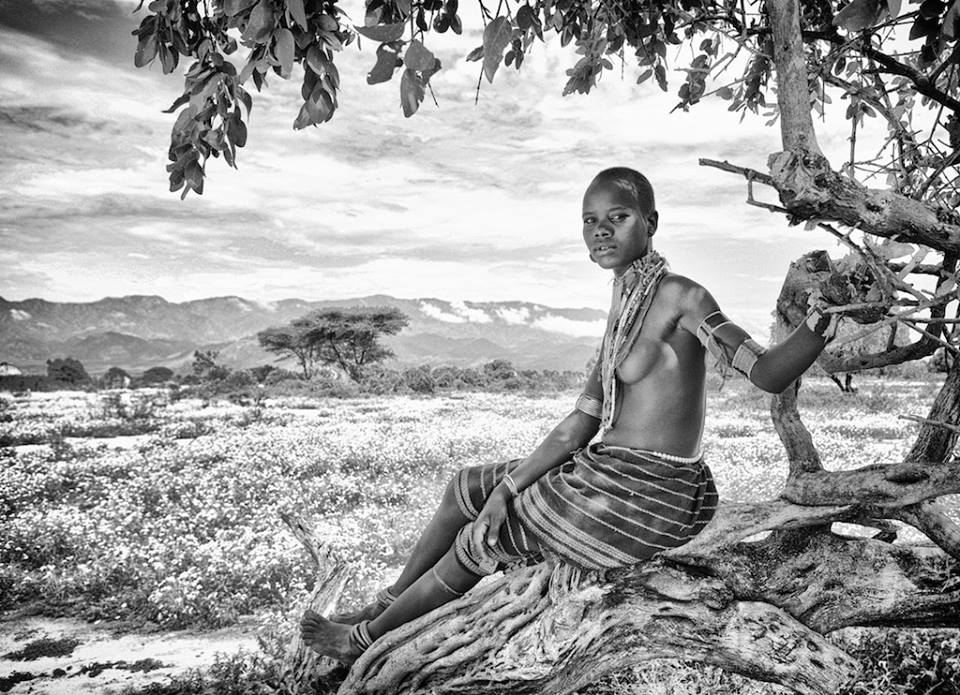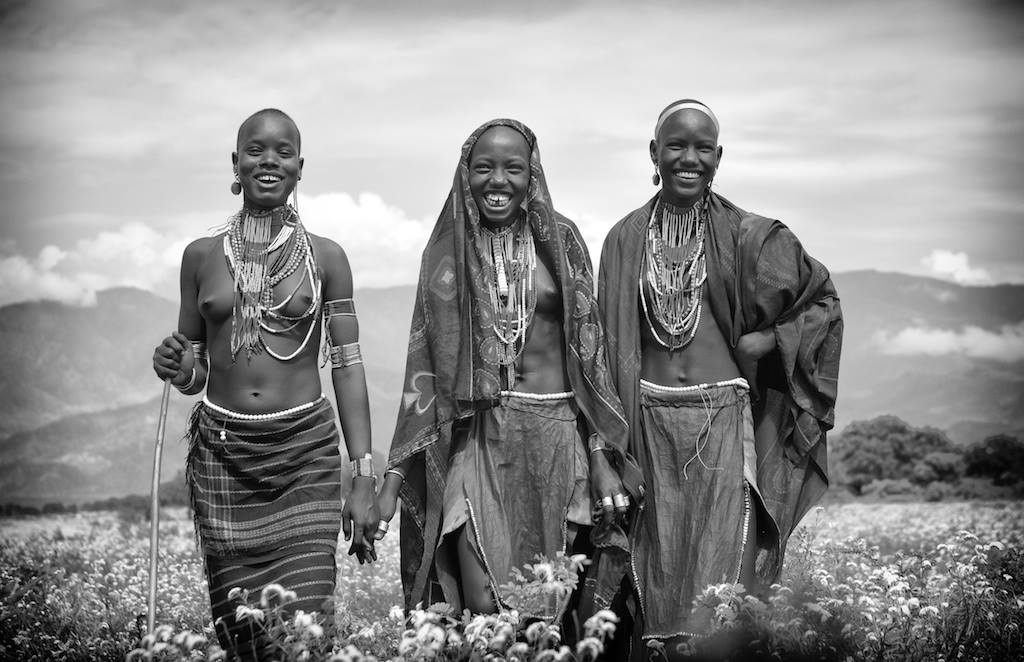My phone rang this morning and my friend/tour operator in Addis Ababa, Osman Ahmed of SORA Tours was on the line. After reviewing the trips that we conducted over the last two months and had many laughs he read off the statistics. Myself and photo leader Jeremy Woodhouse personally purchased and donated over 1,800 pounds of food to the Kara and Arbore tribes. The Bennett family of McKinney, Texas helped us buy 400 pounds of cornmeal. We donated 325 t-shirts collected by New Canaan Country School and the Brett Brown Baseball Academy. Trip members Michele Zousmer and Isabel LeCuna paid for the treatment of a girl whose foot was severely sliced by a machete. The November group of ten, donated school supplies that were warmly received in an Ari village school.The Konso village school received 500 pens graciously donated by my friend Alex the branch manager at TD Bank, 68th Street, NYC as well as 50 notebooks. Nancy Wright, product manager at Clif Bar, supplied us with boxes of protein bars to hand out. Nancy Brandt, a December trip member made a sizable financial donation to Omo Child. Osman summed it all up by saying that our groups were truly ambassadors of peace and goodwill. As Gandhi said;" Be the change you want to see in the world". Happy Holidays to all!
|
On Epic Photo Tours/Pixelchrome Photography Tours we always try to give back to the communities that welcome us and allow us to get a glimpse of their way of life. In November of 2015 the adventurous, friendly and socially aware Omo Valley group of ten, visited a school and observed a complete lack of school supplies. Within an hour of leaving the school, they all reached into their pockets and took out piles of Ethiopian Brr and suddenly we had money for school supplies. Yes, you can buy supplies in Ethiopia but as the teacher told us; "the pens dry up after a week and the pages fall out of the book after a month". So given marching orders by trip member Ginna Fleming, I returned home and used the donated money to buy notebooks, rulers, staplers, scissors and dry erase boards. TD Bank donated 500 pens. Once back in the Omo Valley in December I donated the school supplies to the Ari tribe village school. This small, somewhat forlorn looking one room school was closed, but we were able to find the teacher who let us in and proudly showed us his classroom. We gave him the school supplies and he thanked us. Our guide/translator Eyob beamed with happiness as this was happening. Later on that day Eyob told me that the teacher asked him if we could return next month with more notebooks. Hopefully next December I will return with twice the amount!
The distance in miles from San Diego, California to Egudi, Ethiopia is 9,700. This village, home of the pastoralist Arbore tribe is difficult to reach during the rainy season as the one road quickly turns into a river. In the dry season the dust and gravel kick up and the rocks and pebbles become projectiles on the road. It is here, in this village where the cycle of life is governed by the changing of the seasons and the rise and setting of the sun that I received a life lesson from a girl who didn't know her age, couldn't write her name and sleeps on the hard ground on a goatskin. People live together, eat together, sleep together, laugh together and dance together. It is thought that the more they dance, the healthier their tribe will be. But for me the most symbolic event that I photographed was this lovely girl drinking from a gourd. As she told my translator, when I asked if she could relate differences between her life and mine; " a water bottle is only good for one person to drink from; a gourd is big enough to be shared by many". After I photographed her sitting in the shade, I realized why I just traveled 9,700 miles. I am not sure I will give up my water bottle but on my next trip I will be sure to share the gourd with the people that I meet along the way.
West of the Woito River in remote Southwestern Ethiopia resides the 7,000 strong Arbore people. Living in four small villages in close proximity to one another these pastoralists measure their wealth in cattle. The men leave their huts at sunrise and take their flock to the field. The women do what most do in the Omo Valley; haul water, prepare coffee, nurse their young and beautify themselves. Often photographed by the streams of foreigners who pull in to their villages in search of the; "undiscovered", "feral", "lost" the Arbore are rarely interacted with in a meaningful way. It is here, while meandering alone I came across three tribal beauties. All accessorized with colorful necklaces, waist bands made of highly polished beads and serpent shaped earnings. Their feminine way of being, gracefulness, and playfulness blended into the environment. The wild flowers, flat plateau surrounded by the mountains all framed them and I truly felt that they were people of the land. Not only could I peacefully photograph the Arbore girls, I could truly feel the moment as a special one. As we got closer to one another I heard teenage chatter and laughter. As much as I was enjoying this special meeting of people from diverse places I could feel their radiance, dignity and sense their joy in meeting me.
|





 RSS Feed
RSS Feed